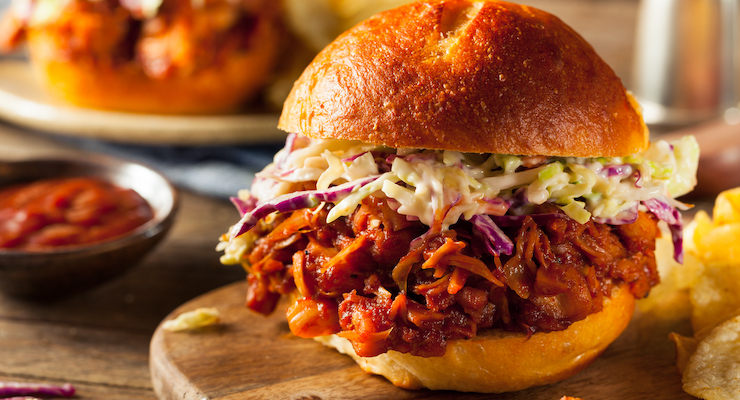Market Updates
Instacart Releases ‘Plant Power’ Trends Report
The online grocery delivery platform examined a mainstream migration to plant-based retail products.

By: Mike Montemarano
Associate Editor, Nutraceuticals World

Instacart, an online grocery delivery platform, released a “Plant Power” trends report, highlighting the details of a mainstream consumer migration to plant-based alternative foods and beverages.
The new data shows that, for example, one in three Instacart consumers purchased a plant-based meat or milk product and, when asked about the grocery and food habits adopted during the COVID-19 pandemic that they’ll keep for the long term, 30% of survey respondents said they plan to continue eating healthier by preparing lighter, plant-based meals.
Among Instacart consumers who added a plant-based alternative item to their cart for the first time, 20% chose almond milk, 17% chose dairy-free cheese, 5% chose tofu, 5% chose veggie burgers, 4% chose oat milk, 3% chose dairy-free yogurt, 3% chose almond butter, and 2% chose coconut milk.
“Plant-based food has grown from a niche category into a grocery staple over the past two years,” Laurentia Romaniuk, trends expert and senior product manager for Instacart, said. “Searches for terms like ‘plant-based,’ ‘meatless,’ ‘vegetarian,’ and especially ‘vegan’ took off on Instacart as consumers looked for healthy at-home meals during 2020 lockdowns. And this trend is turning into a long-term lifestyle – search popularity has been growing even more in 2021.”
The Breakdown
Instacart reports that over the past three years, two plant-based categories in particular had the greatest surge in interest on their platform – grill-friendly ‘faux meat’ saw a sales growth of 42%, YOY growth in 2020, and plant-based milk alternatives saw adoption rates increase by 27%. The fastest-growing plant-based meat brands on Instacart in 2021 were Impossible Foods, Alpha Foods, Franklin Farms, Sweet Earth, and Earth Grown, while the fastest growing plant-based milks and creamer brands were Laird Superfood, Simply, Nutpods, Planet Oat, and Mooala Organic.
The plant-based consumer on Instacart is more likely to be younger than conventional meat and milk buyers, with one third being between the ages of 30-39. However, soy milk was an outlier, with soy milk buyers tending to be older than those who buy regular milk. 43% of Instacart consumers who buy plant-based meat also buy conventional meat. Additionally, plant-based purchases have seen the greatest rates of growth in the South and East Coast, while consumers living in West Coast metropolitan areas like Portland, Seattle, San Francisco, and Los Angeles purchase the most plant-based products by volume.
There were significant differences between meat and plant-based consumers when it came to what else was most likely to be in their cart. Those who added plant-based ground meat to their cart, for example, were more likely to buy tofu, kale, kombucha, sardines, avocados, hand sanitizer, dental floss, lip balm, bubble bath, and wet cat food. Those who buy only conventional meat are more likely to buy gravy mix, canned pasta, donuts, pastry dough, toaster pastries, juice boxes, cola, chocolate milk, iceberg lettuce, and disposable plates.
Jackfruit on an Upswing
Instacart projects that jackfruit may be the next big thing when it comes to meat alternatives – Instacart consumers adopted jackfruit at a 50% faster clip in 2020, and it appears that the growth of this fruit as a meat stand-in is continuing into 2021.
“We expect consumers will diversify their summer grills with more plant proteins this year,” Romaniuk said. “If jackfruit adoption rates continue to grow at the rate they did during the pandemic, a lot more consumers will be pairing pulled jackfruit with their vegan sausages and plant-based burgers this barbecue season.”


